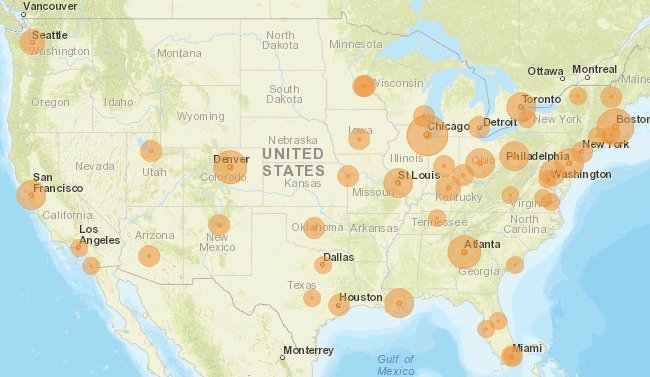Presidential Address
Rosanne Altshuler, 2018 Presidential Address (stay tuned for link)
Daniel M. Holland Medal
Tribute to Michael Keen, winner of the 2018 Daniel M. Holland Medal
-
-
November 15, 2018
-
Health Insurance: New Evidence from Policy Changes
-
Regional Implications of Fiscal/Monetary Stimulus
-
Investment in K-12 Education
-
Topics in Political Economy
David Schonholzer (Yale University), Discussant comments on: “Legislative Redistricting, Party Politics, and the SpatialDistribution of Transportation Expenditure” and “Do More Efficient Taxes Lead to Bigger Government?
-
Optimal Tax 1
- , The Insurance Value of Progressive Taxation with Heterogeneous Risk Aversion
- , Preference Difference, Generalized Social Marginal Welfare Weights, and the Two Approaches for Optimal Tax Theory
- , , Heterogeneity in Talent or in Tastes? Implications for Redistributive Taxation
- , Do justice perceptions support the concept of equal sacrifice? Evidence from Germany
-
Optimal Tax 2
Antoine Ferey (Ecole Polytechnique – CREST), Discussant comments on “Market Power and Income Taxation” and “Generalized Compensation Principle”
-
Charity and Public Goods 1
-
Charity and Public Goods 2
-
- , , The Tax Expenditure for Tax Exempt and Charitable Organizations [slides]
Mildred W. Robinson (University of Virginia School of Law), Discussant comments on: “The Tax Expenditure for Tax Exempt and Charitable Organizations”
-
-
Property Taxes and Local Debt
John E. Anderson (University of Nebraska), Discussant comments on: “The Scope and Use of Local Parcel Tax in California
-
- , , Local Origins and Implications of the 1930s Urban Debt Crisis
- , , , Age-Based Property Tax Exemptions [slides]
John E. Anderson (University of Nebraska), Discussant comments on: “Age-Based Property Tax Exemptions”
-
As Uncertain As Local Taxes
-
Recent Developments in State and Local Public Finance
-
Responses to Local Taxation
-
Environmental Taxes, Cross-border effects and Government Interaction
-
Taxes on Consumption in Developing Countries
- , , , Taxation and Supplier Networks: Evidence from India
- , , , Are Consumption Taxes Regressive? Evidence from Consumption Patterns by Retailer Size in Developing Countries [slides]
- , , , Dual Tax Systems and Firms: Evidence from the VAT in Brazil
-
Policy Innovations in Developing Countries
- , , , , Building Fiscal Capacity in Developing Countries: Evidence on the Role of Information Technology
-
Field Experiments in Tax Administration
- , , , , , Rental Income Tax Compliance: Evidence from a Field Experiment
- , , , , , Federal Tax Liens and Letters: Effectiveness of the Notice of Federal Tax Liens and Alternative IRS Letters on Individual Tax Debt Resolution [slides]
-
Information, Engagement, and Compliance
- , , , , , , , The Offshore World According to FATCA
-
Investment and International Tax Incentives
-
Debt, Equity, and International Taxation
-
International Tax Competition
-
Digital Aspects of International Tax
- , OECD BEPS In Action 1: Factor Presence as a Solution to Tax Issues of the Digital Economy
- , Is Digital Different? Economic Nexus and Other Efforts to Respond to the Changing International Tax Landscape [slides]
- , Three Arguments in Defense of the EU’s Proposed Digital Services Tax
-
Local Public Finance Abroad
-
Tax Planning and Uncertainty
-
Tax Planning in a Time of Policy Changes
-
Shareholder Taxes and the Firm
-
Labor Supply and Tax Rates
-
Income Mobility and Inequality
-
Fiscal Policy Transmission
-
Consequences of Corporate Tax Reform
- , , Voluntary Disclosure, Competition, and Litigation Risk: Evidence from the American Taxpayer Relief Act of 2012
- , , , The Effects of the Tax Cuts and Jobs Act of 2017 on Defined Benefit Pension Contributions
- , , The Immediate Impact of Tax Reform on Corporate Earnings: Investor Expectations and Reactions
-
Corporate Taxes and Aggregate Investment
-
Pension Policy and Saving
-
Tax Administration and Compliance: Regulatory Design
-
Household Saving and Portfolio Behavior
-
Tax Design: Withholding, User Fees, and Consumption Taxes
-
Health Care and Addiction
-
Behavioral Responses to Taxation
- , , , The Elasticity of Taxable Income in the Presence of Intertemporal Income Shifting
- , , , The Quality of the Estimators of the ETI
- , Behavioral Responses to Spatial Tax Notches in the Retail Gasoline Market
- , Does the District of Columbia Income Tax Policy Increases Tax Revenue? Evidence from Regression Discontinuity Design
-
Bunching Evidence on Responses to Taxation
Xiaxin Wang (Fudan University and University of Michigan): Discussant comments on: “Best of the Bunch”
Xiaxin Wang (Fudan University and University of Michigan): Discussant comments on: “A Kinky Consistency”
-
-
-
November 16, 2018
-
The 2017 Tax Bill and the Future of Tax Reform
Len Burman (Syracuse University and Urban-Brookings Tax Policy Center): Discussant comments on: “The Tax Rate Ratchet” and “The Other Labor Law? Understanding the Tax-Workplace Intersection”
-
Politics and Policy Outcomes
-
Student Loans and Repayment
-
Tax Administration Issues Affecting Low Income Taxpayers
-
Infrastructure and Local Debt
-
Natural Experiments and Demographic Variation in Compliance
Arun Adhavani (University of Warwick), Discussant comments on: “Paying Taxes Automatically” and “Tax Collections”
-
Safety Net Programs and Labor Markets
-
NTA Next Generation
-
State and Local Tax Workarounds
- , Federal Tax Treatment of States, Their Political Subdivisions, and Their Affiliates [slides]
-
Optimal Tax 3
-
Optimal Tax 4
-
Misreporting and Tax Compliance in Developing Countries
-
Financial Reporting and Auditing
Edmund Outslay (Michigan State University), Discussant comments on “The Relevance and Pricing of Non-Income Tax Relief”
Edmund Outslay (Michigan State University), Discussant comments on “How Do Firms Use Cash Tax Savings?”
-
M&A and Supply Chain
-
Legal Perspectives on the TCJA
- , Modeling Changes in U.S. International Tax Rules
- , The New Non-Territorial U.S. International Tax System [slides]
- , A Modest Defense of the 2017 Tax Act
- , The Transition (Under-)Tax
-
Compliance, Enforcement, and Dynamic Responses
- , , , The Dynamic Effects of Tax Audits [slides]
-
Using Experiments to Inform Tax Policy
- , , Causal Structures of Tax Avoidance and Theories of Corporate Taxation [slides]
-
Policy Impacts on Retirement
- , , Policy Interactions at Retirement [slides]
-
Graduate Student Research Forum
- , Merging to Dodge Taxes? Unexpected Consequences of VAT Adoption in India
- , Federal Mandates, Local Budgets, and Long-Run Growth: Evidence from the 1972 Clean Water Act
- , Candy Crushed Grain Saga: Consumer Responses to Tax Notches in the Confections Market
- , The Effects of the Child Tax Credit on Labor Supply
- , The Effect of Passing School Bond Measures on Student Achievement: Morale and Capital Spending
- , Of Race and Revenue: The Effects of Fiscal Stress on Racial Bias in Local Revenue Generation
- , Dynamic Income Responses to Tax Reform: New Approach
- , The Impact of State Financial Intervention on School District Fiscal Performance: Evidence from Illinois
- , Real Estate Bubbles, Local Property Tax Regimes, and City Development: Evidence from 1980s Japan
-
Profit Shifting After Territorial
Michael Smart (University of Toronto): Discussant comments on: “Where Does Multinational Profit Go”
-
November 17, 2018
-
Distributional Analysis After the 2017 Tax Act: Findings and Directions for Research
- , , Distributional Analysis of the TCJA: Impact of Business and Individual Tax Provisions on Households [slides]
- , , Estimating the Distributional Effects of the TCJA: Looking Back and Looking Forward [slides]
-
Post-secondary Education Access and Returns
-
Inequality and Taxation
-
Local Expenditures
-
Housing, Commercial Property and Local Taxes
-
Tax Preparers and Tax Administration
-
On Tax Havens
-
TCJA and Related
-
New Empirical Perspectives on the Aggregate Effects of Fiscal Policy
Aparna Mathur (American Enterprise Institute): Discussant comments on: “Cross-Border Tax Evasion” and “Tax Policy Measures in Advanced and Emerging Economies”
-
Benefit Take-Up
-
Taxation with Non-Standard Utility Functions
-
Effects of Specific Corporate Provisions
-
Transparency and Tax Avoidance
- , , The Cost and Benefits of Tax Treaties with Investment Hubs: Findings from Sub-Saharan Africa
- , , , Does Public Country-by-Country Reporting Deter Tax Avoidance and Income-Shifting? Evidence from Capital Requirements Directive IV
- , Dutch Shell Companies (SPEs) and International Tax Planning
- , span class=”author”>Hubertus Wolff , Financial Transparency to the Rescue: Effects of Country-by-Country Reporting in the EU Banking Sector on Tax Avoidance
-
Optimal Tax 5
-
Behavioral Biases and Corrective Taxation
-
Saving Responses to Pension Design
- , , The Effect Of Employer Matching and Defaults on Individuals’ TSP Savings Behavior [slides]
-
Fiscal Policy and the Labor Market
-
Tax Planning and Financial Reporting
![National Tax Association [ National Tax Association ]](https://ntanet.org/wp-content/themes/nta-custom/library/images/nta-whitebg-web-top.svg)


![National Tax Association [ NTA ]](https://ntanet.org/wp-content/themes/nta-custom/library/images/nta-white-logo.svg)